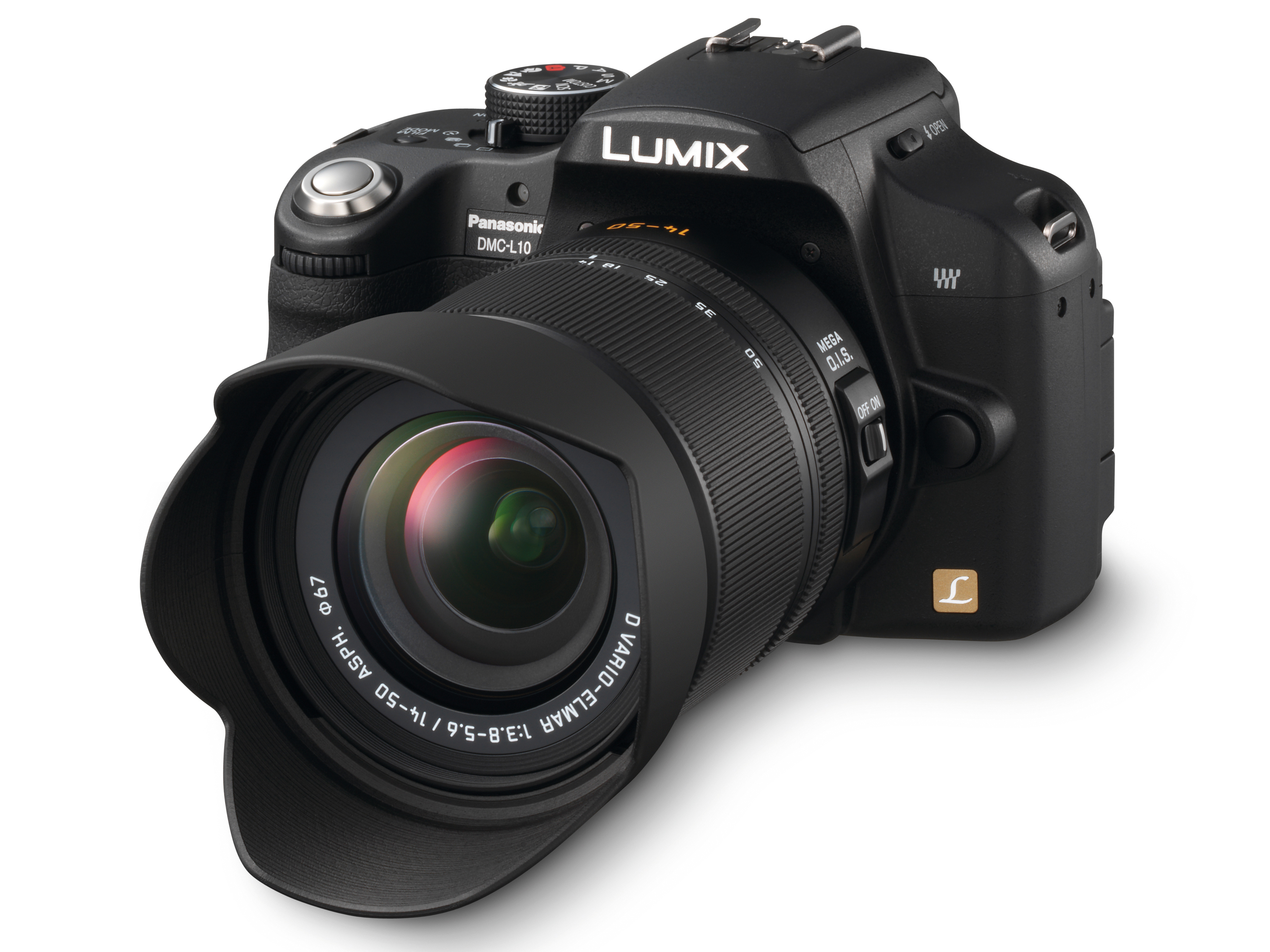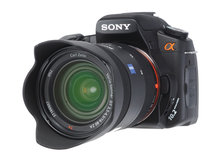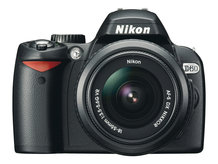Editor's Choice: Top 10 digital SLR cameras
The best DSLR snappers all in one place

If you feel like your old compact camera is no longer doing the job you want, it might be time to make the step up to a DSLR.
Generally speaking, they're far better cameras than compacts - but that extra quality comes at a price.
Digital SLRs offer a whole new way of shooting compared to compact cameras. They give you a lot more freedom in the way you photograph.
The most noticeable thing about a DSLR is the ability to change the lens for versatility over composition. A host of settings such as shutter speed, aperture and focusing can also be manually adjusted for complete creativity.
The digital SLRs in this round-up start at £300 and go as high as ten times that. With that in mind, there's something for everyone here.
Sony A200 - £300

Of Sony's range of DSLR cameras, the A200 is certainly the most modestly priced.
Sign up for breaking news, reviews, opinion, top tech deals, and more.
It's also stunningly good value at £300 - which is £150 cheaper than when it launched.
For a 10-megapixel DSLR with so many features, you could be forgiven for being a little suspicious, infact.
But the camera largely stands up as a good entry level product. Sure the 18-70mm kit lens is distinctly non-phenomenal, but that's the beauty of DSLRs - you can buy new lenses after you've bought the body of the camera.
If you were to do just that - you will find the A200 standing up to be counted amongst cameras with much higher retail prices.
Overall, the A200 is a pretty decent camera, but it falls down in a number of areas which is a shame.
The standard lens isn't good enough, the control layout's not quite straightforward enough, and the finish isn't quite elegant enough.
However, for a newcomer to the digital SLR market, you could do a lot worse than the Sony A200. It offers great value, a beautiful LCD display and plenty of extra features. Read our full review
Nikon D60 - £400

The 10.2MP Nikon D60 is a fantastic entry-level DSLR camera. It offers a raft of features and takes some stunning photographs. And get it doesn't cost the Earth and it's fairly easy to use, too.
One of the D60's strongest points is its ability to edit photos after you've taken them. Most DSLR cameras offer this option, but considering the price, this one goes the extra mile.
In Playback mode it's possible to carry out basic in-camera image optimisation and enhancement.
What's more, if you shoot RAW files you can process these in-camera too, changing some of the camera settings and generating a second, JPEG version of the image.
Alternatively, you can process JPEGs on your computer using the supplied View NX image browser.
This only offers a handful of RAW conversion options, but it's still useful.
For beginners, the interface is both clear and attractive, but for more experienced users it may prove irritating. First, you need to press an 'info' button to make the screen display interactive, and then use the navigational controller to highlight the option you want to change.
Ultimately, if you're a seasoned DSLR photographer, the D60 is not going to impress hugely.
But if you're new to the concept of wielding a powerful camera to take professional-quality photos, the D60 is an absolute bargain. Read our full review
Canon EOS 450D - £500
Canon has fantastic reputation in this market, and there's one main reason for that: it makes great cameras.
Canon made a bit of a splash in 2007 by releasing the much-mooted EOS 400D which turned out to be a brilliant DSLR for a bargain price.
The Canon EOS 450D is a step up from there, and with it comes a bevy of new features and settings. Sure, all the classic Canon hallmarks are there, but the improvements have made the 450D a better camera.

James was part of the TechRadar editorial team for eight years up until 2015 and now works in a senior position for TR's parent company Future. An experienced Content Director with a demonstrated history of working in the media production industry. Skilled in Search Engine Optimization (SEO), E-commerce Optimization, Journalism, Digital Marketing, and Social Media. James can do it all.